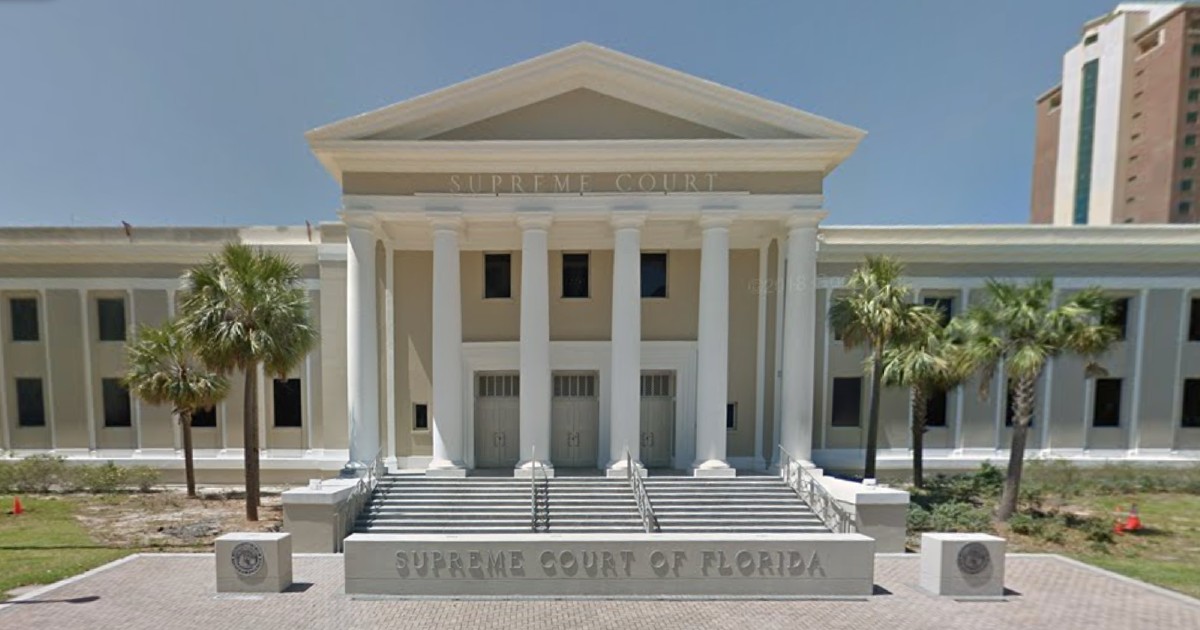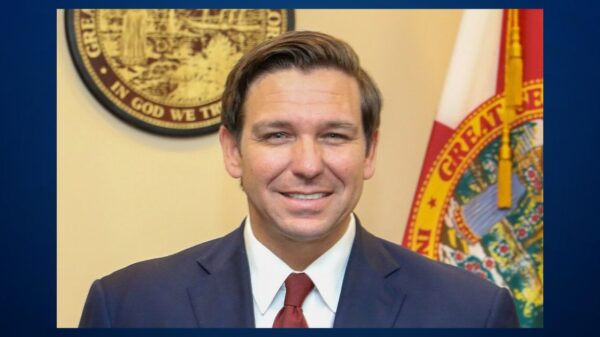By Zack Smith
Florida’s Governor, Ron DeSantis, suspended Monique Worrell from her position as the State Attorney for Florida’s Ninth Judicial Circuit (the local elected prosecutor for the Orlando area). DeSantis contended that “during Worrell’s tenure in office, the administration of criminal justice in the Ninth Circuit had been so clearly and fundamentally derelict as to constitute both neglect of duty and incompetence.
Worrell, in turn, contended that DeSantis didn’t have the power to do this, so she petitioned the Supreme Court of Florida for a writ of quo warranto and a writ of mandamus seeking to prohibit his actions and to restore her to office. The court, in a per curiam opinion, denied her request, explaining that the governor’s executive order suspending her passed constitutional muster under the deferential review to which it was entitled.
The Florida Constitution provides that the governor may “suspend from office any state officer not subject to impeachment.” State attorneys are not subject to impeachment under the Florida Constitution, and so a governor may suspend any one of them for “malfeasance, misfeasance, neglect of duty, drunkenness, incompetence, permanent inability to perform official duties, or commission of a felony.” As relevant here, the court said that “‘neglect of duty’ means ‘the neglect or failure on the part of a public officer to do and perform some duty or duties laid on him [or her] . . . by law. It is not material whether the neglect be willful, through malice, ignorance, or oversight.’ ”The court also explained that “‘incompetency’ refers to ‘any physical, moral, or intellectual quality, the lack of which incapacitates one to perform the duties of his office.’”
Furthermore, the court explained, “a state attorney like Worrell is tasked with the ‘duty to prosecute violations of the law.’”
In reviewing the governor’s executive order suspending Worrell, the court said that it would only make two limited inquiries: First, it would confirm “that the governor has specified the applicable grounds for suspension” under the relevant provision of the Florida Constitution, and second, it would make sure that “the factual allegations in the suspension order . . . bear a reasonable relation to the asserted basis for the suspension.”
The court said the governor’s order fully complied with those conditions. It provided the grounds for Worrell’s suspension—neglect of duty and incompetence—and provided supporting facts. In fact, the court noted that over the course of fifteen pages, DeSantis’s executive order explained how Worrell had “authorized or allowed charging practices that ‘permitted violent offenders, drug traffickers, serious juvenile offenders, and pedophiles to evade incarceration when otherwise warranted under Florida law.’
The court rejected Worrell’s contention that DeSantis’s allegations were too vague to be enforceable or unduly interfered with her exercise of prosecutorial discretion. The justices noted that “Worrell’s objection as to vagueness is really about the sufficiency of the evidence marshaled in the Executive Order” and made clear that the sufficiency of the evidence issue is for the trier of fact to resolve.
Under the Florida Constitution, “the trier of fact in these matters—that is, the body that determines whether the allegations are sufficient to prove the charges of ‘neglect of duty’ and ‘incompetence’—is the Senate.” The court also made clear that “a suspension order does not infringe on a state attorney’s lawful exercise of prosecutorial discretion where it alleges that such discretion is, in fact, not being exercised in individual cases but, rather that generalized policies have resulted in categorical enforcement practices.” The court added that, “[w]hile broad in its lawful scope, prosecutorial discretion is no complete defense to an allegation of incompetence or dereliction of duty.”
Justice Renatha Francis concurred separately, urging the court to reevaluate its practices in reviewing a governor’s suspension orders. She said that the court should “hew more strictly to the textual demands of the constitution and consider whether the political question doctrine is implicated in deciding” such cases. She also aired her view that the court had “improperly expanded [its] authority to issue writs of quo warranto . . . [which] were historically narrow in scope and limited by their common law background.” Such writs, she said, were historically “granted only upon a showing that the challenged official lacked the authority to exercise the power he or she did; not when the official—who clearly had the authority—improperly exercised said power.”
Justice Jorge Labarga issued the lone dissent from the court’s decision. He complained that “the Florida Constitution in effect authorizes the governor to override the will of the majority of voters who elected the official and to appoint a replacement of the governor’s choosing.” He also lamented the “glaring disparity between the due process afforded to officers subject to impeachment under [the Florida Constitution], and those who are subject to suspension.”As the majority countered though, Labarga’s “primary quarrel is with the Florida Constitution, not with [the court’s] decision.”
Zack Smith is a Senior Legal Fellow & Manager, Supreme Court & Appellate Advocacy Program, Edwin Meese III Center for Legal and Judicial Studies at The Heritage Foundation.






















